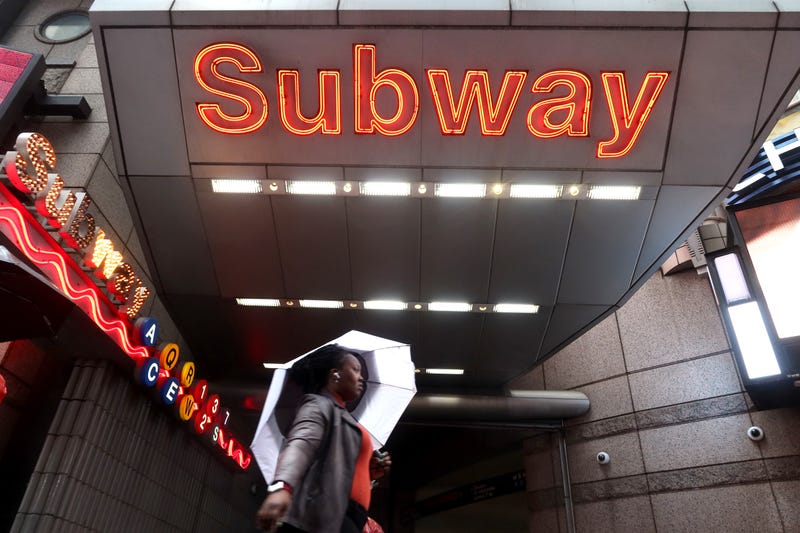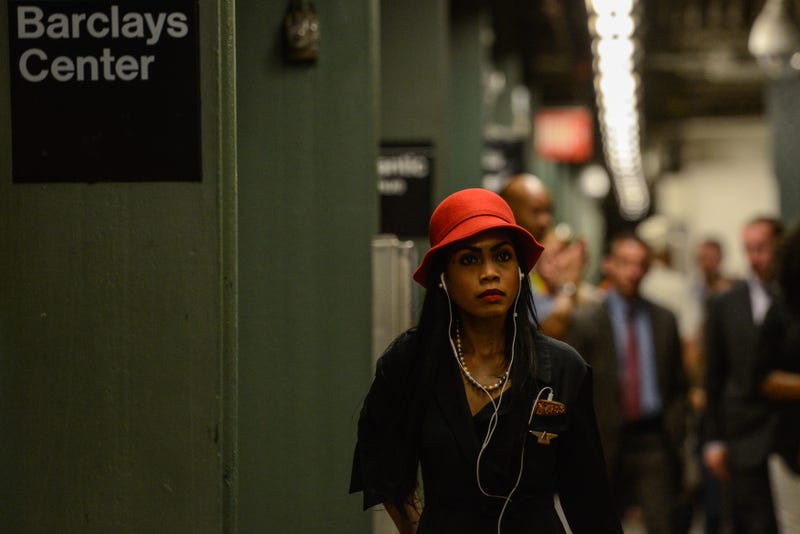
NEW YORK (1010 WINS/WCBS 880) -- With congestion pricing in limbo and New York looking for other ways to fund the MTA, a state lawmaker said officials should consider letting companies adopt stations and trains.
New York Assemblymember David Weprin told 1010 WINS on Friday that there are better ways than congestion pricing to fund the MTA, such as adverts.
"I think the advertising, you know adopting subway stations and adopting Metro-North stations, is something that's worked in many cities, has been a huge revenue-raiser," Weprin said. "Look at our stadiums."
Just as companies purchase the naming rights for facilities like stadiums—e.g., Barclays Center and Citi Field—the same can be done for transit.
The Chicago Transit Authority partners with sponsors who promote their brands in the city's rapid transit system in various ways, according to the U.S. Department of Transportation.
Indeed, the Atlantic Avenue Barclays Center Station was named under such an agreement that nets the MTA $200,000 a year.

The MTA already offers businesses various advertising and partnerships, including everything from branded Metro-Cards to station "environments."
Congestion pricing—which would have charged most drivers $15 a day to enter Manhattan below 60th Street—was put on "pause" last week in a bombshell announcement by Gov. Kathy Hochul.
Weprin said congestion pricing is "bad policy" that he'll continue to fight against. "There are so many ways to fund the MTA other than on the backs of individual drivers," he said.
The Democratic lawmaker from Queens said he believes the Assembly would've agreed to Hochul's alternate proposals to fund the MTA last week—like an increase to the MTA payroll tax—but were stopped by the state Senate.
"The problem was the timing," Weprin said. "It was the last two days of the session. We tried to do a lot of things. And we couldn't agree with the Senate on a revenue stream. I think the Assembly would have gone through with the governor's proposal, but the Senate was opposed to it and there wasn't enough time."
At a rally against congestion pricing with the Uniformed Fire Officers Association in Long Island City on Friday, Weprin said he didn't expect a funding solution until late 2024 or early 2025 but said the Legislature "is committed" to finding one.
The governor’s announcement blew a $15 billion hole in the MTA’s capital plan, hampering the agency’s ability to move forward on upgrades and accessibility projects.
Hochul said she postponed the plan at the last-minute due to concerns about its impact on the finances of everyday New Yorkers and on the city's post-pandemic recovery.
Supporters of congestion pricing joined city Comptroller Brad Lander earlier this week to announce they were exploring "all legal avenues," including "multiple lawsuits," to get the program implemented.
